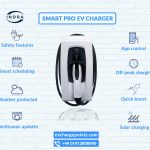
In our blog last week, we discussed the implications of charging on battery life and performance of regular EVs. As many EV drivers will know, the technology in Tesla vehicles can often differ from the rest of the market and slightly different advice applies. Therefore, we have tailored our charging guide for Tesla owners this week.
Tesla Battery Range
Tesla vehicles often have ranges in excess of 300 miles. However, many Tesla owners have reported this dropping to 260 miles very quickly. This is not down to degradation, instead it is your vehicle learning to charge to 80/90% over time to protect the battery.
That said, Tesla batteries do appear to degrade quicker than other EVs. According to Electrek data, Tesla vehicles can degrade up to 15% within the first 150,000 to 200,000 miles. It is believed that the 90kW Tesla battery pack degrades faster than their previous 85kW pack. This is a good example of the fine balance between range/capacity and battery life. However, the 90kW battery pack has since been replaced by the 100kW pack in newer Tesla models as the technology advances.

Protecting your Tesla Battery
Batteries in Teslas, and other EVs, naturally degrade over time and can lose up to 2% of their capacity each year depending on factors such as driving style, temperature and charging habits. The lithium-ion cells in the battery packs of most modern electric cars should not be kept at a full state of charge or a very low state of charge for long periods of time.
It is regularly said that EV batteries should not be allowed to exceed 80% charge. Many public chargers will stop when the battery reaches this level, and this also applies to Tesla. When asked about charging, Elon Musk himself said that it is better to charge to 80% every day.
The main difference with Tesla is that their technology is much more dynamic and ever changing. Tesla batteries evolve over time, even within the same vehicle models, and this means that Tesla regularly change their advice on charging. For an interactive update on charging your Tesla, visit here.
Given the availability of Tesla branded ‘superchargers’, it may seem like rapid EV charging is the obvious solution for your vehicle. No need to install an EV charger at home and the ability to achieve a full charge in around 30 minutes while out and about. However, over-reliance on rapid charging is the most common cause of battery degradation in EVs.
Tesla vehicles can easily handle up to 50kW, which is still much more than the average home charging setup. Exceeding this regularly will put stress on the inner workings of the battery. Therefore, slower home charging allows you to retain range while the battery maintains its power and output capability over time.
What Advice do Tesla Give?
Tesla advise owners to slow charge their vehicle whenever it is not in use. They also offer extensive tips on how to keep your battery healthy and maintain the vehicle’s range. These can be summarised as follows:
- Use predominantly slow charging day-to-day and only rely on fast and rapid chargers when necessary.
- Avoid letting the battery go above 90% or below 20% capacity.
- Set your regenerative braking to “Standard” to maximize energy you get back while decelerating.
- Store your vehicle somewhere warm such as a garage.
- Maintain your vehicle’s tire pressures. Inflation recommendations are listed inside the drivers-side door jamb.
- Remove unnecessary cargo to lighten your load – more weight requires more energy to move the vehicle.
- Fully raise all windows and change air suspension (if equipped) to “Low” or “Very Low” when driving at highway speeds. For Model 3 cars with aero wheels, install aero wheel covers.
The Verdict
In short, charging your Tesla every day is not likely to cause damage to your EV, even in the long term. Provided you do not try to overcharge, and you take advantage of the intelligent technology in the vehicle, optimal charging to avoid damage is likely to be achieved each time.
It is more important to avoid reliance on rapid chargers like Tesla superchargers to maintain a healthy battery.
If you are an EV owner or prospective owner and would like to know more about life with an electric vehicle, please get in touch. A member of our technical team would be happy to answer any questions that you have.




